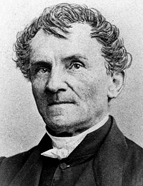

We know, on the other hand, that in the 1820s and 1830s, several works published in German focused on the so-called “Portuguese question”, that is, the succession of King João VI and the true national institutions. Examples of this are Ernest Münch’s work, Geschichte der Repraesentatifsystems in Portugal, Leipzig, 1827; Einige Notizen über die Form und das Wesen der Portugiesischen Cortes nach den von Visconde de Santaren II. Gesammelten Authentischen Nachrichten, Berlin and Stettin, 1829; and the Manifesto of His Most Faithful Majesty Our Lord King Miguel I..., published anonymously in the Gazeta de Berlim on 10 May 1832. As for historical sources, in 1827, also in Berlin and Stettin, a work by João Álvares, Crónica do santo e virtuoso infante D. Fernando (Chronicle of the Holy and Virtuous Infante D. Fernando), was printed.
During the 1830s, Portuguese academic and historiographical life was in full evolution and revolution – as was, in fact, the national political society itself. While renowned scholars and historians, many of them linked to the Lisbon Academy of Sciences, felt the need to emigrate to France and Italy (as was the case with the Viscount of Santarém, D. Francisco Alexandre Lobo and Frei Fortunato de São Boaventura), after the liberal victory, literature, art and historical dissemination gained new impetus under the auspices of the king consort, the German D. Fernando II, protector of promising young people such as Alexandre Herculano and Francisco Adolfo de Varnhagen. It should be noted that these figures stood out in new forms of cultural dissemination linked to the interests and tastes of an emerging middle class, such as O Panorama and Revista Universal Lisbonense. Common to all these figures was the need to bring national historiography closer to the public, the academic community and European standards, both in terms of dissemination to a general audience and the development of a solid scientific discourse.
This work is financed by national funds through FCT - Foundation for Science and Technology, I.P, in the scope of the projects UIDB/04311/2020 and UIDP/04311/2020.
